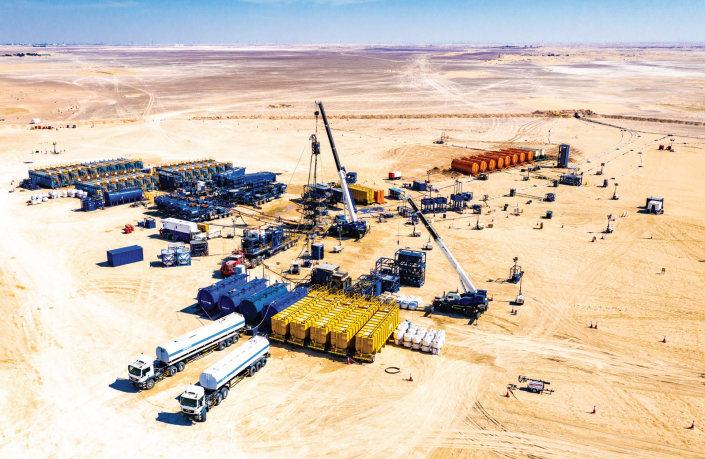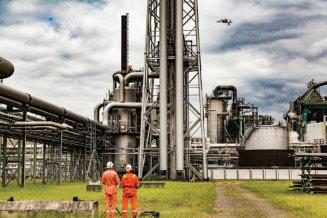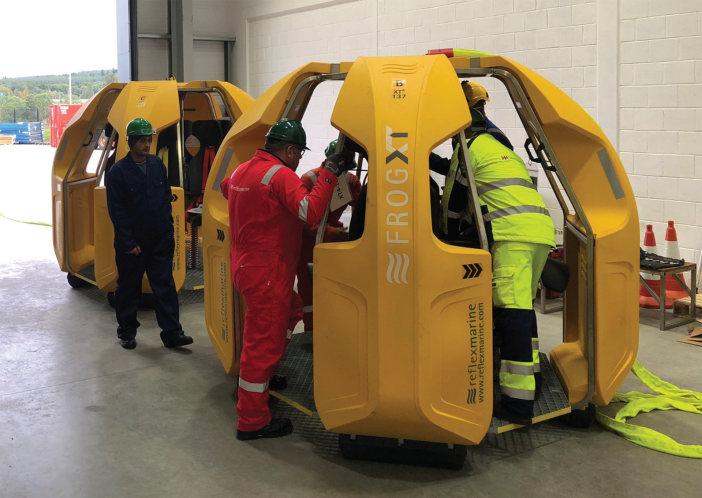
6 minute read
How do you run an oil company from home?
How do you run an oil company
from home?
The sudden, large-scale shift to remote working as a result of the pandemic has required new ways of leading and managing. Boris Ivanov, founder of GPB Global Resources B.V. has some advice for business leaders.
THE COVID-19 PANDEMIC has triggered one of the most volatile periods on record for energy markets, with almost a third of global oil demand wiped out as millions stayed home amid lockdown measures and travel bans.
As a result, oilfields were shut down, storage tanks filled up in record time, US prices temporarily turned negative for the first time in history and oil companies embarked on a price war to try and gain a competitive advantage in the market.
A pandemic can have severe consequences in impacted areas and geographies, making them inaccessible for an extended period of time. Running an oil company – a type of business which typically requires a significant number of workers on the ground and near others – is no easy feat.
Before the pandemic, many oil producers had been wary of moving away from traditional means of drilling with on-site specialists. Overnight, entire workforces were relocated home and operations had to adapt to ensure the safe running of oil assets.
The sudden, large-scale shift to remote working has meant leading and managing in new ways. So, as the industry starts to take stock of one of the most disruptive periods in history, what are the key lessons to running an oil company from home?
Communication and connection
Running a global business with operations spread across multiple countries is challenging at the best of times, particularly when you are having to navigate multiple time zones and language barriers. With employees also working remotely and therefore being disconnected from the company’s central hub, it is imperative that you form an ongoing and open dialogue.
Leaders need to respond quickly and address reality. They must acknowledge the new, difficult facts on the ground and their narrative must be honest, simple and direct. Communication style is at the heart of this.
While developing clear communication pathways has always been of the upmost importance to leaders, this has now moved far beyond communicating wider company decisions and trajectories, to a process whereby leaders and senior management actively engage with team members directly, and on a regular basis. The key here is to empower team members and offer support amid the ongoing market uncertainty, while avoiding the pitfalls of micromanaging.
This process does not just apply to employees. Successful oil companies also rely greatly on developing strong working relationships with leading industry players including governments, private equity and non-bank lenders, development finance institutions and local civil society organisations. Over the past six months, it has become paramount that oil executives
The pandemic has ushered in new ways of working.
have become more focused on connecting and engaging with these stakeholders, in the absence of in-person interaction.
Embrace the digital revolution
Even before COVID-19, many organisations faced considerable IT challenges. Now, COVID-19 is pushing companies to rapidly operate in new ways and IT is being tested as never before. Leaders across all industries have benefitted from adopting the right technologies amid the global shift to working from home. From Zoom calls and Microsoft Team chats to shared spreadsheets and cloud storage solutions, these tools have enabled executives to effectively steer operations and monitor employee progress.
While the same applies within the oil industry, some executives have gone one step
further to bridge distancing issues by using the latest digital developments. For example, the COVID-19 pandemic has accelerated the use of remote drilling and fracking technologies. This has kept oil wells operational and employees on the clock. The adoption of digital inspections in maintenance and manufacturing has also helped oil companies to stay on track and make faster decisions, both in relation to current and future projects.
Leverage local partnerships
With a vast number of industry employees including oil rig, refinery and pipeline workers re-locating, it is vital that company executives leverage their local networks and partnerships to ensure on the ground assistance and engagement.
Ultimately, companies who come out on top will be those who remain agile and adapt with the rapidly developing situation. For this you will need a revised, perhaps reinvented business model, which is resilient enough for the new times. If your usual country representatives are no longer available, consider creating new teams or tapping into local talent networks and re-distribute responsibilities accordingly.
Teams also tend to thrive when they are co-located, so re-assigning employees to form new teams within their immediate proximity can also help to significantly boost productivity and company morale. It is important to remember that these teams can remain flexible, and as the energy market landscape changes, they can be adjusted to suit the company’s immediate priorities.
Image Credit: GPB Global Resources B.V.

Boris Ivanov, founder of GPB Global Resources B.V.
Champion transparency and authenticity
While the very priority of an organisation during a pandemic is the safety and wellbeing of its workforce, firms must also address how critical functions can be performed and monitor operations constantly. Effective leaders will need to make sure that their employees feel safe and appreciated. Employees are looking for leaders to be trustworthy, compassionate, stable and hopeful. You do not have to be in the building to be visible and show a strong leadership presence.
Being transparent, particularly amid the constant stream of industry news, will help reassure employees about their position in relation to the company and the role they can play in its future. Rather than being evasive, now is the time for leaders to step up and be honest about the priorities for the company, realistic about the challenges ahead and change behaviours and processes where necessary.
Running any company from home comes with its own unique challenges, and leaders will need to commit to bold structural moves and embrace new ways of thinking to successfully adapt to the new COVID-19 era. Actions taken now can have an instant impact on the survival of the company and how it can successfully rebound from the global downturn. Business impact analysis on the chain of activities and functions, along with interdependencies (e.g. people, process, technology, data, facilities, third parties) can also help to inform potential mitigation strategies.
It is crucial that executives do not overlook the fundamentals of good management. For example, communicating and connecting effectively with both employees and industry stakeholders, remaining transparent and open amid the current turmoil and recognising employees’ individual and collective strengths.
Future business journey
While businesses focus on supporting employees, customers and suppliers, stablise revenues and reshape their businesses to align with the present situation, leaders will need to assess opportunities for growth and optimise their company’s resilience. They will then have to rapidly turn their attention to the next period.
With an unpredictable economic recovery over the horizon, new competition and opportunities will rise; with that, business practices, leadership mindsets and corporate behaviour will shift into a new era as industries reinvent themselves and redefine their purpose. Agility, flexibility, visionary thinking and bold action will be paramount in this new age of opportunity, as the oil and gas ecosystem reconfigures and rules of the next normal toughen. n









